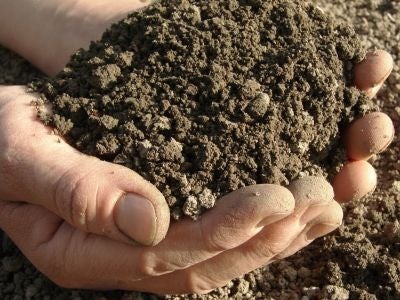The Independent's journalism is supported by our readers. When you purchase through links on our site, we may earn commission.
Feeling nauseous? Eat dirt

It may be regarded as a strange phenomenon in the developed world, but tucking into a generous helping of mud pie is perhaps the most natural way to protect the stomach against toxins, parasites and pathogens, a new study suggests.
After sifting through 480 reports compiled by missionaries, plantation doctors, explorers and anthropologists from around the world, researchers at Cornell University concluded that human geophagy - the act of eating dirt - is most likely driven by the belief that earth and clay absorb dangerous toxins and act as a shield against pathogens.
Their review was published in the June issue of The Quarterly Review of Biology and explores a range of possible theories to explain why people in areas outside the Western world crave dirt.
After exploring other possible theories - that geophagy is driven by hunger and food shortages, or for its nutrients like iron, zinc or calcium - researchers found that protection against toxins and pathogens was a recurring pattern within the mountain of data.
While it may sound counterintuitive, the report points out that geophagy is documented most commonly in women in the early stages of pregnancy and in pre-adolescent children - both of whom are especially sensitive to parasites and pathogens.
In parts of Africa, rural areas of the US, and remote villages in India, for instance, clay is used to eliminate nausea, as it coats the gastrointestinal tract and is believed to absorb dangerous toxins. The eating of clay is also common among people suffering from gastrointestinal stress, the report pointed out. Because the dirt itself is usually taken from deep below the surface of the ground and is usually boiled before consumption, it also acts as an antidote to parasites, researchers said.
For Western societies, however, the act of eating dirt - typically considered impure and contaminated - is treated as a pathology and abnormal behavior, a stigma lead author Sera Young hopes to demystify.
It's also been associated with pica, an eating disorder characterized by the abnormal cravings for nonfood items.
"We hope this paper stimulates research," Young and her colleagues wrote. "More importantly, we hope readers agree that it is time to stop regarding geophagy as a bizarre, non-adaptive gustatory mistake."
Currently, countries like Haiti, the poorest economy in the Western Hemisphere, eat "bonbons de terre," sun-dried cookies or pancakes made from earth.
But as the report points out, the first written account of human geophagy came from Hippocrates more than 2,000 years ago and since then has been reported on every inhabited continent in almost every country.
Meanwhile, another study published in Australia last year suggests that children who eat or inhale dirt while spending time on the playground could actually become smarter.
When scientists fed mice a dirt bacteria called Mycobacterium vaccae, the animals navigated complex mazes twice as fast as those that weren't - a finding that flies in the face of helicopter parenting and compulsive hand-sanitizing habits.
Young has also written a book on the subject called Craving Earth: Understanding Pica - the Urge to Eat Clay, Starch, Ice, and Chalk , which is available on Amazon.
http://www.jstor.org/page/journal/quarrevibiol/forthcoming.html.
Join our commenting forum
Join thought-provoking conversations, follow other Independent readers and see their replies
Comments
Bookmark popover
Removed from bookmarks